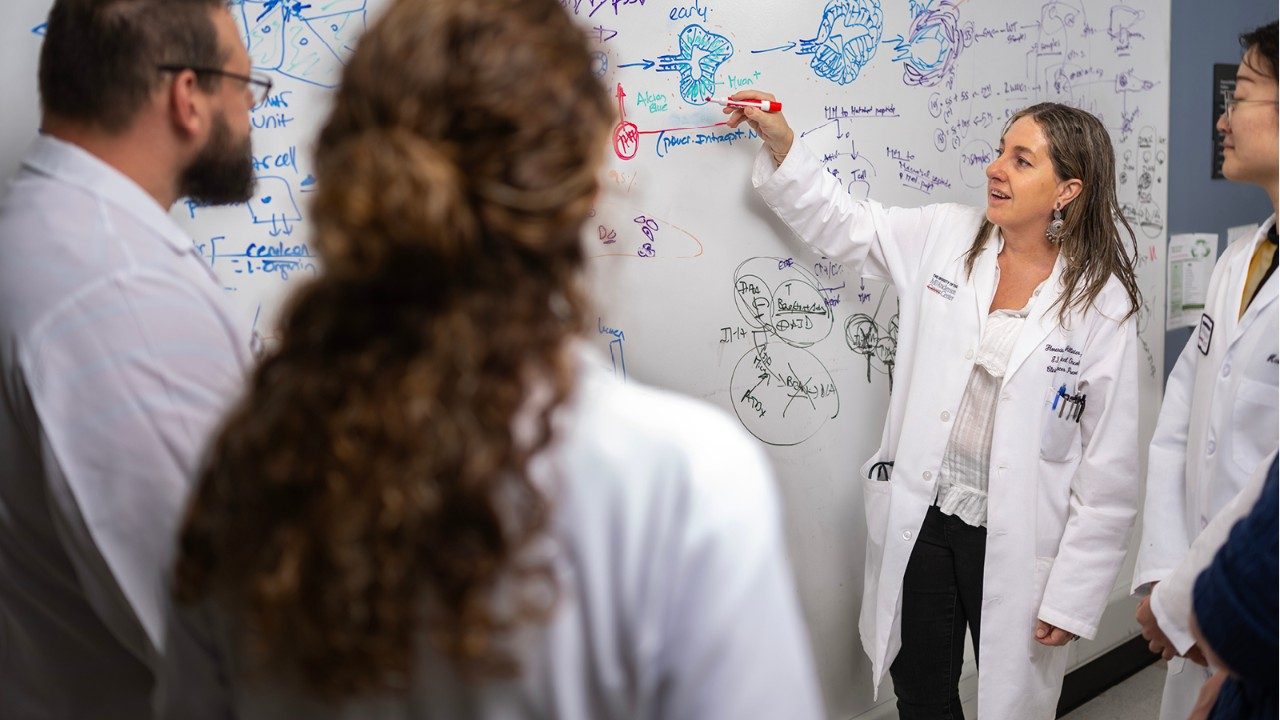How digital twins are shaping the future of cancer care
Imagine a future where an oncologist could assess your response to multiple treatment options using a virtual simulated model of your tumor and organ systems. This is the future of cancer care — digital twins — where technology and innovation come together to pave the way for more precise and personalized treatment.
“Digital twins hold great promise in accelerating scientific breakthroughs and transforming how we approach oncology discovery and precision medicine,” says Caroline Chung, M.D., vice president for Data Impact and Governance, and chief data and analytics officer. “While this is still emerging technology that is not yet ready for use in the clinic, digital twins have the potential to inform patients and health care providers to guide medical decisions, as well as to assist researchers who are discovering and developing better detection methods and treatments for cancer.”
Are food dyes unhealthy?
How digital twins are shaping the future of cancer care
Triple-negative breast cancer survivor: Why I chose a clinical trial at MD Anderson
|
$entity1.articleCategory
|
|---|
|
$entity2.articleCategory
|
|
$entity3.articleCategory
|
|
$entity4.articleCategory
|
|
$entity5.articleCategory
|
|
$entity6.articleCategory
|
Find stories by topic
Find out everything you need to know to navigate a cancer diagnosis and treatment from MD Anderson’s experts.
How digital twins are shaping the future of cancer care
April 24, 2025
Head shaving and brain surgery: 4 things to know
April 17, 2025
CT scans and cancer risk: What patients need to know
April 16, 2025
What can a pathology report tell you?
April 10, 2025
Read inspiring stories from patients and caregivers – and get their advice to help you or a loved one through cancer.
Get MD Anderson experts’ advice to help you stay healthy and reduce your risk of diseases like cancer.
Are food dyes unhealthy?
April 25, 2025
What to expect when you have a mole removed
April 18, 2025
Does sugar cause cancer?
April 16, 2025
Is seed oil healthy?
April 14, 2025
Diet soda and cancer risk: What you should know
April 09, 2025
How to get your heart rate up
April 04, 2025
Learn how MD Anderson researchers are advancing our understanding and treatment of cancer – and get to know the scientists behind this research.
Top 5 MD Anderson abstracts at AACR 2025
April 25, 2025
Cell therapy: The evolution of the ‘living drug’
April 22, 2025
How non-scientists are helping cancer researchers
February 21, 2025
4 questions with immunology researcher Susan Bullman
February 04, 2025
4 questions for mathematical oncologist Heiko Enderling, Ph.D.
January 28, 2025
Committed to making cervical cancer screening easier
January 08, 2025
11 new research advances from the past year
December 19, 2024
Finding hope for cancer patients in ferroptosis research
December 12, 2024
Read insights on the latest news and trending topics from MD Anderson experts, and see what drives us to end cancer.
How to take medications properly: 6 questions, answered
February 28, 2025
Clinical Ethics Fellow passionate about improving patient care
February 27, 2025
Senior speech pathologist: Patients are my No. 1 priority
February 19, 2025
Find out what inspires our donors to give to MD Anderson, and learn how their generous support advances our mission to end cancer.
Three cancer survivors raise funds to support Colorado patients
October 03, 2024
Inflammatory breast cancer survivor finds hope at MD Anderson
October 24, 2023













































